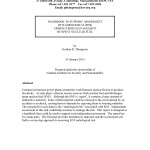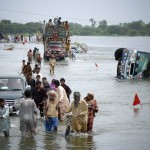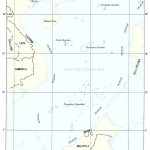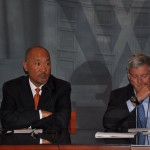
Commercial nuclear power plants around the world harness nuclear fission to produce electricity. At each plant, a fission reactor receives fresh nuclear fuel and discharges spent nuclear fuel (SNF). Although the SNF is “spent”, it contains a large amount of radioactive material. Some of that material could be released to the environment by an accident or an attack, causing harm to humans by exposing them to ionizing radiation. The potential for such harm is the “radiological risk” associated with SNF. Independent assessment of this risk could help societies to manage the risk. This report is designed as a handbook that could be used to support such independent assessment. The report has two main parts. The first part provides introductory material, and the second part sets forth a seven-step approach to assessing SNF radiological risk.
Gordon D. Thompson, Phil., is currently the executive director of Institute for Resource and Security Studies in Cambridge, MA. In addition, he serves as Research Professor, George Perkins Marsh Institute, Clark University, Worcester, Massachussetts.
This handbook was produced for of the Institute’s Resilience and Security of Spent Fuel in East Asia project with the support of the John T. and Catherine D. MacArthur Foundation.







